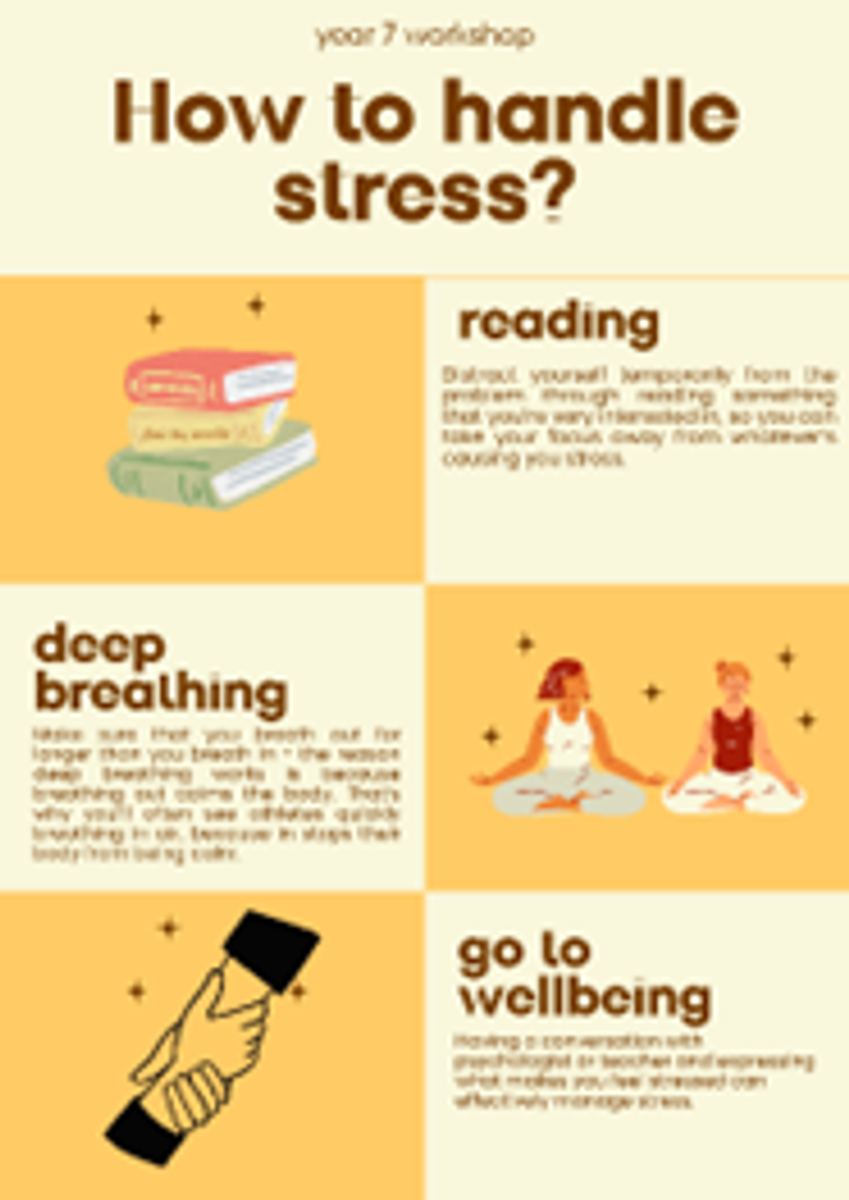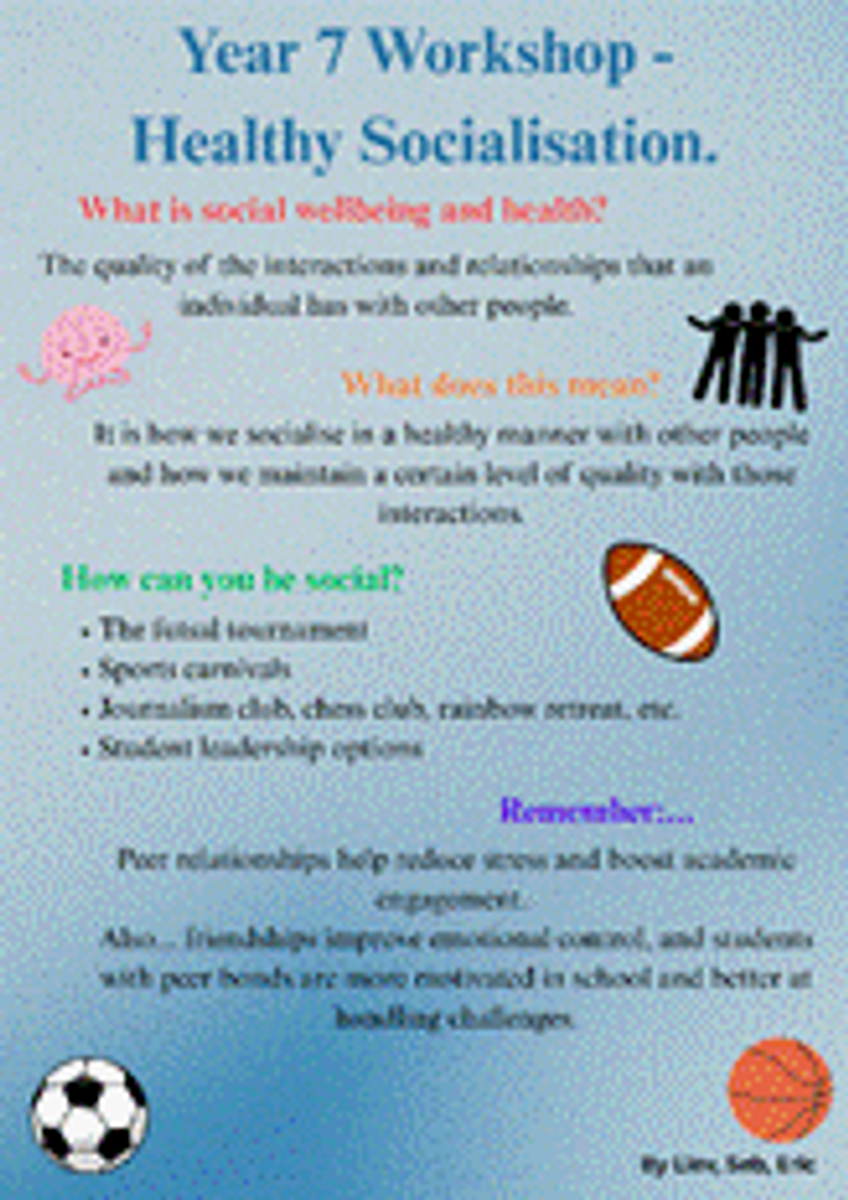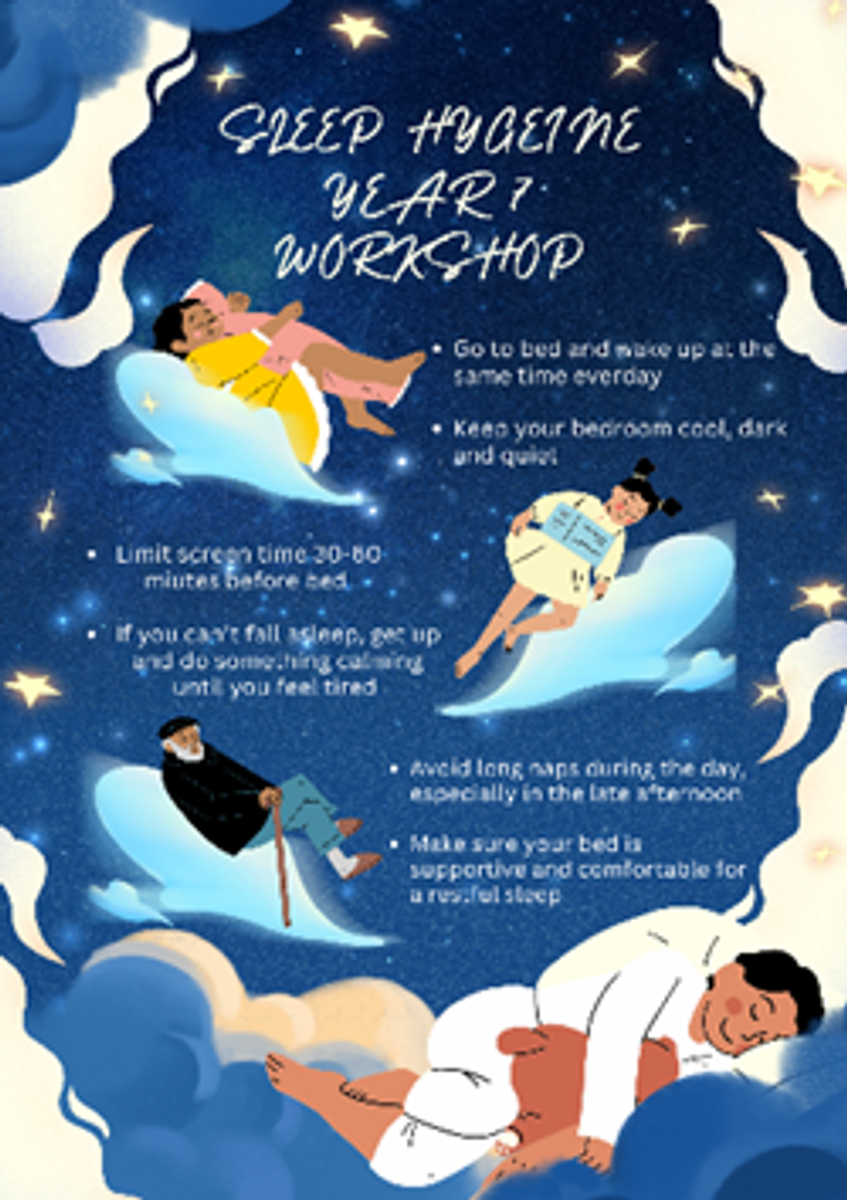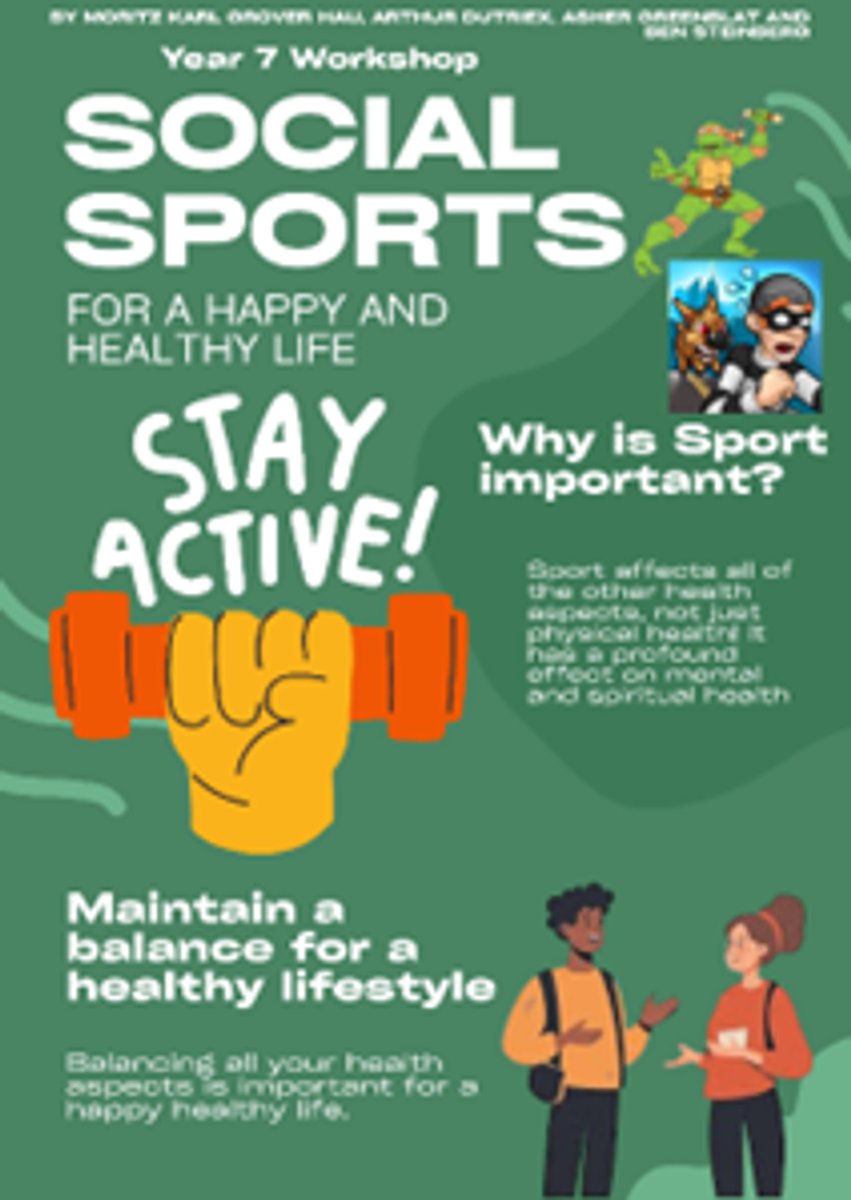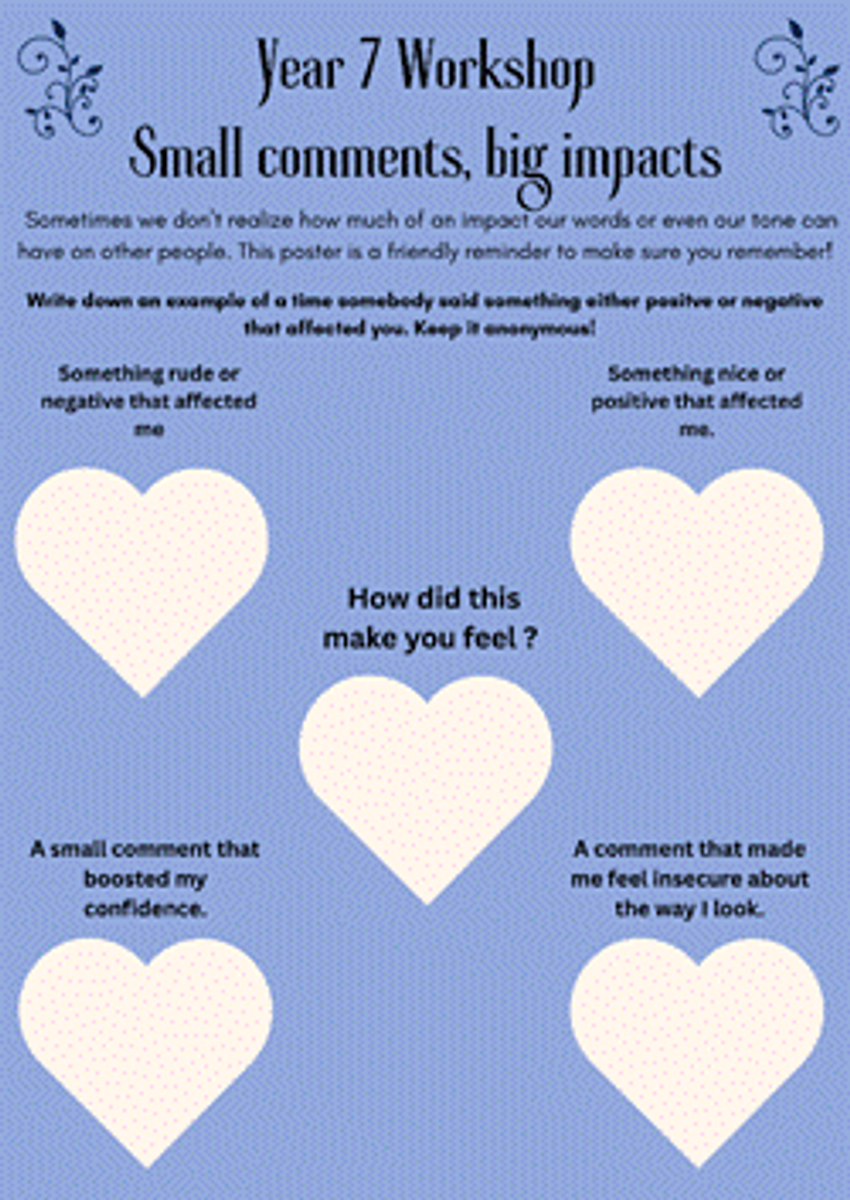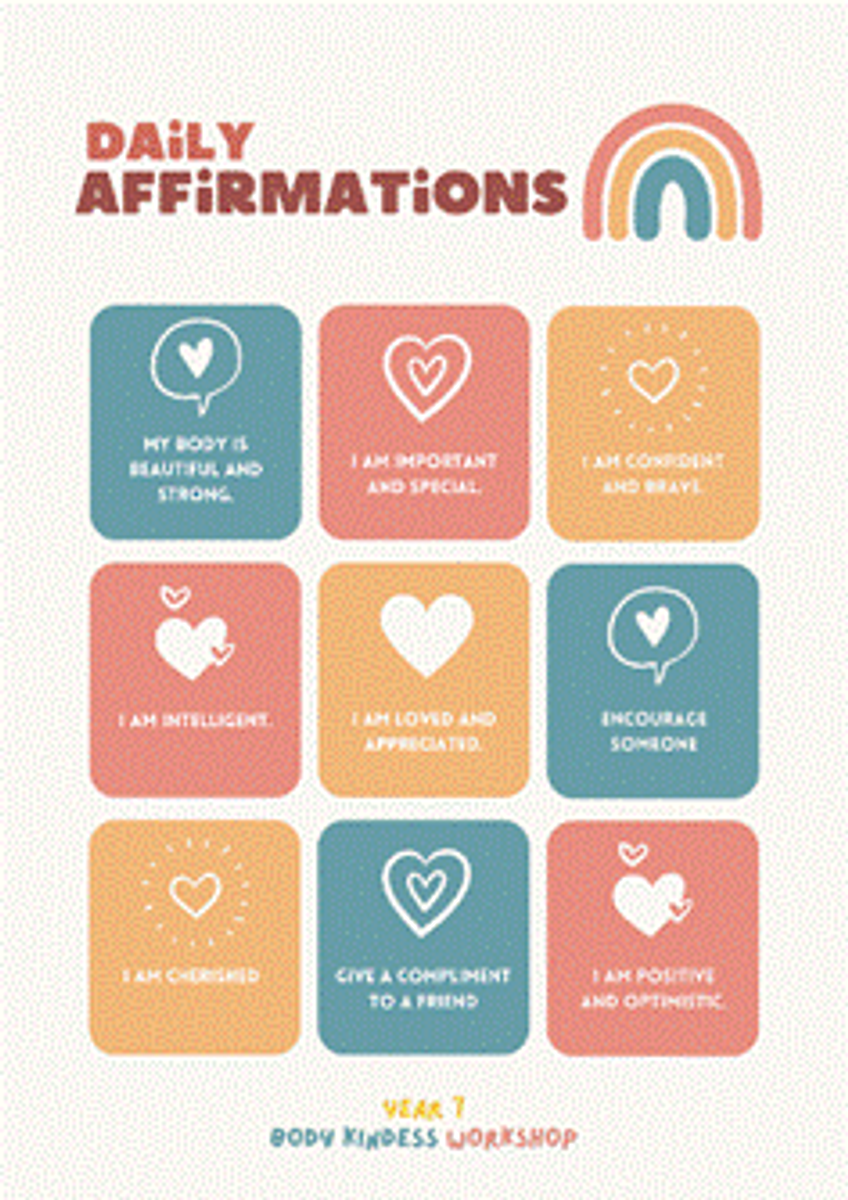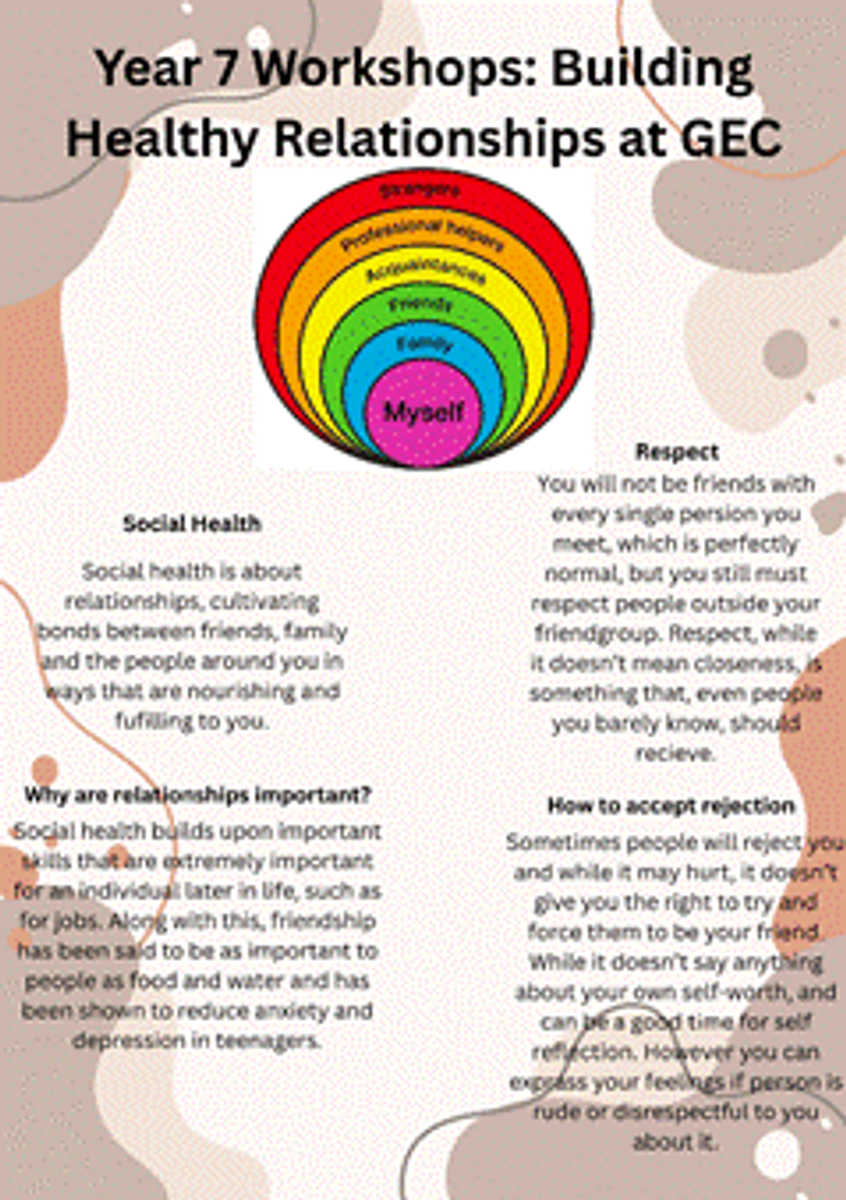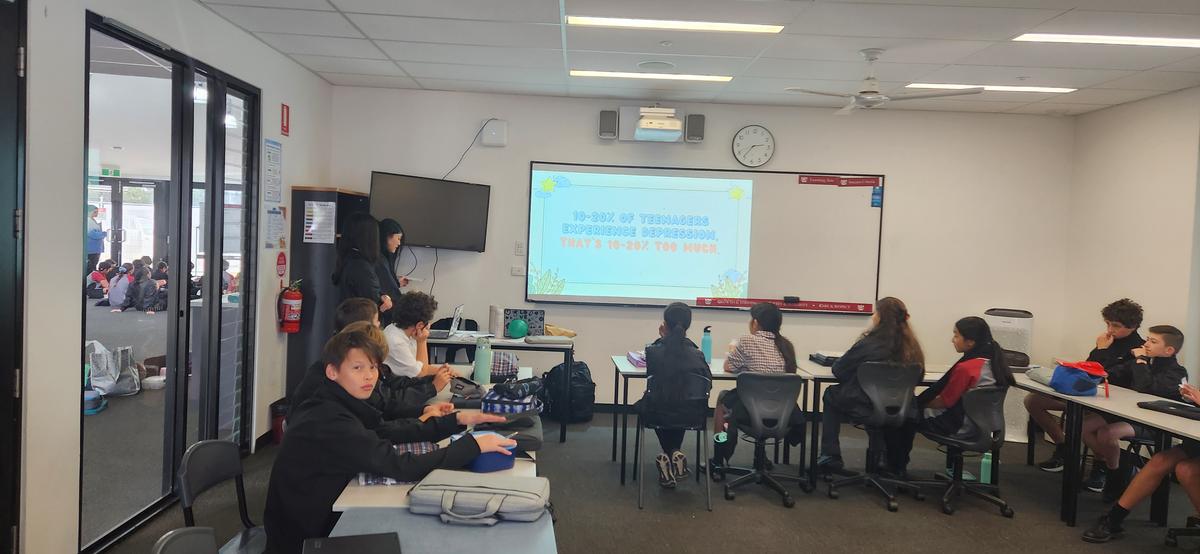Year 7 Workshops

Emotional Literacy
On Thursday 22nd May, we delivered a workshop for year 7 about emotional literacy. We introduced what mental health is and taught them how to release stress when they are anxious or stressed. We planned an activity of passing the ball and sharing some things we enjoy doing to help relax. We received positive feedback from the year 7 students, and they seemed to really enjoy this activity. We then demonstrated box breathing and the students tried this. After the box breathing, we tested what the students had learnt using an online booklet, all the classes were excited to do the booklet. So, we felt like the game could allow them to demonstrate their knowledge in a fun way.
Before the workshop began, we were really nervous and worried about what would happen. But after the first class, we felt more confident and relaxed when teaching.
We learned from the workshop what it’s like to be a teacher and share knowledge with others. We realised that being a teacher is not easy; you must always keep students' attention and make sure they listen carefully. It was challenging to get students to pay attention to you. Through this, we understood that having an interesting teaching environment is very important, the attraction could make students participate in class thus learning more.
Carrie, Stephanie and Jake
Year 10
Healthy Socialisation
Our workshop was on healthy socialisation, the positive effects of socialisation and different ways to be socially healthy, like joining clubs, and different coping strategies.
We gave them some key facts and information on our Kahoot and from studies. When we answered their responses to our questions, we presented many possible coping strategies to overcome challenges with socialisation. We emphasised how important it is to be physically and socially active.
We think we were overwhelmed in our first presentation, and we had some disparity between us in presenting to the class. The slides were also too long, and we didn't always get to finish all our groups. But starting from the second lesson, we started to get the hang of it, and it became less and less difficult and stressful as more grade 7 classes came in. We also developed our presentation over time, improving the presentation by reorganising key slides for a smoother presentation. Our group performance was pretty good, especially after the first few groups, we were confident but a little burnt out from the monotony by our 5th or 6th group.
During our presentation we had multiple questions. We asked them to discuss the question amongst themselves and then we would give them a couple of minutes to discuss in their groups, then we would ask them to put their hands up and we would give feedback on their thoughts. After that we would explain to them one or two of the best possible choices that you could make in that situation.
Liev, Eric and Seb
Year 10
Sleep Hygiene
Mia and I did our workshop on sleep hygiene. We talked about good tips to get restful sleep, some tips were to sleep in a cool, dark room, put away your devices 30-60 minutes before bed and to avoid long naps during the day so you can sleep well at night. We also ran an activity where they stood up if they thought the statement on the presentation is true and if they thought it was a myth they would stay seated.
To conclude, we had them raise their hands and share the good sleeping habits and bad sleeping habits they had learnt, which we recorded on the whiteboard. After that we asked them to think about two good habits they could start and two bad habits they could stop doing, to improve their sleep hygiene. Our aim of this workshop was to teach the year 7s to get into good habits for sleeping and to know what they should avoid doing when going to sleep.
Siena and Mia
Year 10
Improving Social Wellbeing through Sports
Our workshop was designed to give the year 7s a break from being sedentary in class and get them moving. We achieved this by playing a game of capture the flag. We taught them about the benefits of physical exercise, and how it affected the mental and social aspects of health. We then showcased this with our game of capture the flag, getting the year 7s to write down how they felt before and after the game, as a practical activity to see physical activity at work on their mental and social health. We chose to make them play a team sport like capture the flag as it would help their social health, making them talk and work with others they may not normally work with.
Moritz, Asher, Ben and Arthur
Year 10
Small Comments, Big Differences
Amber and I delivered our workshop; ‘small comments, big differences’ to the year seven classes. The concept of our workshop was teaching year 7s healthy communication and how small seemingly harmless comments can make a really big difference both negatively and positively. We talked about the benefits of learning to be more critical about what you say before you say it and played 2 activities with the year 7s. The first activity was a game where we stuck a hypothetical comment on the board and the year 7s had to go to either side of the room or stay in the middle depending on whether they think this comment could affect somebody in a positive way, negative way or if it depends on the tone and context. We did five different examples and had in-depth discussions with the year 7s as to their opinions. The year 7s were encouraged to share their opinions which evoked lots of debate amongst them and challenged them to think critically about what they say and how they say things.
All in all the workshop went really well with most of the year 7’s being engaged and open to discussion.
Amber, Astrid and Annabelle
Year 10
Body Kindness
In our workshop we discussed body kindness. We wanted to inform the year 7s about the issues and struggles others can go through throughout life, especially in teenage years. We highlighted that we sometimes are unaware of what's going on in each other's heads and often year 7s typically may struggle with confidence to speak up when they are uncomfortable. We decided to make our workshop about body kindness because it is important to be inclusive and avoid singling anyone out. Our workshop focused on mostly the positives, but also some information on negative forms of body image to showcase the reality that not everything is ‘unicorns and rainbows'. We understand that it was an extremely sensitive topic and especially since they have just started growing.
At the start of the presentation, we showed year 7s about how most things they see on the internet are edited and retouched to appeal to them so that they can sell them a certain idea or product. We showed two photos one edited and one unedited and they got to spot the difference between the two photos.
We also made a video on body kindness, and it showed different scenarios of real-life situations where one of our characters would say or think negatively or positively of others or themselves. Negative body language has an impact on people's mental health and wellbeing, and we want to raise awareness of what it looks like. Lastly, we tested their knowledge by giving them scenarios. The year 7s would then hold up a red or green flag, to indicate if it was negative or positive language which impacts body image.
Lavinia, Cara, Seli and Eden
Year 10
Creating Positive Relationships at GEC
We created a presentation on creating positive relationships at GEC. We delivered the presentation to all year 7 student groups and the classes seemed to be engaged with the content. We played a version of the game "Groups of". For the game, we explained the rules to the students and had them walk around the space. I would then call out a number and an action to mime (e.g. 4, soccer) and then repeat the process to fit our schedule. The idea of including the game was to get them energised and having fun before the lesson portion of the workshop, as well as serving as an ice-breaker. It also allowed us to get the Year 7s to work together which is important in terms of social health and wellbeing.
We then delivered a slideshow around teaching how to create positive relationships at GEC. We then tested what the students had learnt through a Kahoot. Many of the students got correct answers, showing they did indeed understand and learn. In reflection, we believe we could improve the time and pace of our presentation, as well as increasing discussion time with the students. We feel improving these aspects would improve the Kahoot response for those who did not get all the questions correct.
Marshall, Ella and Alabama
Year 10

